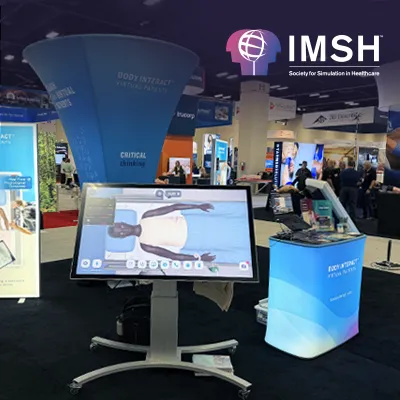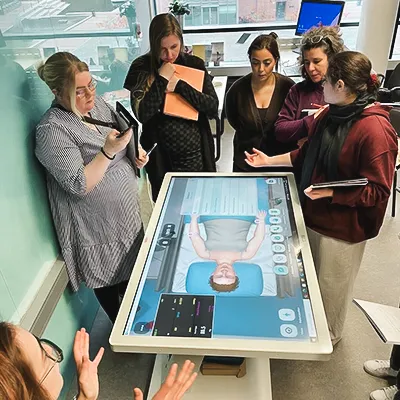
Virtual Patient Simulation raises awareness of blood donation in US High Schools
America’s Blood Centers and Body Interact announce a five-year partnership to promote lifelong support for the American blood supply through virtual learning experiences.
Innovating how High School students learn about the critical importance of blood donation is the main purpose of the new multi-year national partnership between America’s Blood Centers (ABC) with Body Interact – Virtual Patient Simulator.
This collaboration aims to help innovate the way students and potential blood donors learn about the critical importance of this donation by providing cutting-edge virtual patient scenarios illustrating the lifesaving impact of this noble act.
According to ABC, there has been a concerning 60.7% decline in donations from individuals aged 16-18 between 2019 and 2021. Considering that nearly 20% of all blood drives were hosted at high schools or colleges last year, the organization recognizes the importance of early education and exposure to blood donation in cultivating lifelong donors.
Aligned with students’ demand for digital healthcare education opportunities, the Body Interact will develop 10 cutting-edge virtual patient scenarios that will be integrated as part of an expanded ABC High School education program – Vein to Vein: The Science of Blood Donation.
Kate Fry, CEO of America’s Blood Centers, expressed their anticipation for the partnership, stating “to provide an engaging and interactive learning experience that will help strengthen and diversify the blood supply for years to come”.
Altruism and Experience Learning
Offering students across the country complimentary access to a more engaging and interactive learning experience, enhancing educator’s ability to provide immersive and impactful education in classrooms. In the opinion of Raquel Bidarra, U.S. Country Manager at Body Interact, “Not only is blood donation a noble act but also a critical one that could touch students’ loved ones and their communities”. For this reason, the Portuguese company aims to “bring attention to the universal relevance of blood donation through experiential learning”.
ABC and its international division, ADRP: the Association for Blood Donor Professionals, first released Vein to Vein: The Science of Blood Donation, a groundbreaking high school education program in 2022 to help educators craft lesson plans to develop student leadership skills and a lifelong interest in supporting nation’s blood supply.
This turn-key resource is educator-crafted and designed to meet Next Generation Science Standards. Implementation goes beyond the field of science to also offer opportunities to integrate English Language Arts and Mathematics.
About America’s Blood Centers
Founded in 1962, America’s Blood Centers is the national organization bringing together community-based, independent blood centers. Its member organizations operate more than 600 blood collection sites providing close to 60 percent of the U.S., and a quarter of the Canadian, blood supply.
These blood centers serve more than 150 million people and provide blood products and services to more than 3,500 hospitals and healthcare facilities across North America. All ABC U.S. members are licensed and regulated by the U.S. Food and Drug Administration. For more information, visit their website.
Learn more about this partnership at America’s Blood Centers’ official press release.
Simulation for High School and CTE Programs
Body Interact is an engaging digital simulator for problem-solving, clinical reasoning, and decision-making skills enhancement, which uses 3D virtual patients to mimic real-life situations and patient encounters.
The Virtual Patient Simulator acts as a learning accelerator for current and future healthcare professionals and provides them with a safe and immersive hands-on training tool to hone and perfect their skills.
As learner-centered and adopted by more than 250,000 users around the world, Body Interact will now provide High School and CTE students with lifelike virtual patients covering essential topics such as blood and trauma, pre-hospital blood use, and the vital need for a diverse blood supply.









